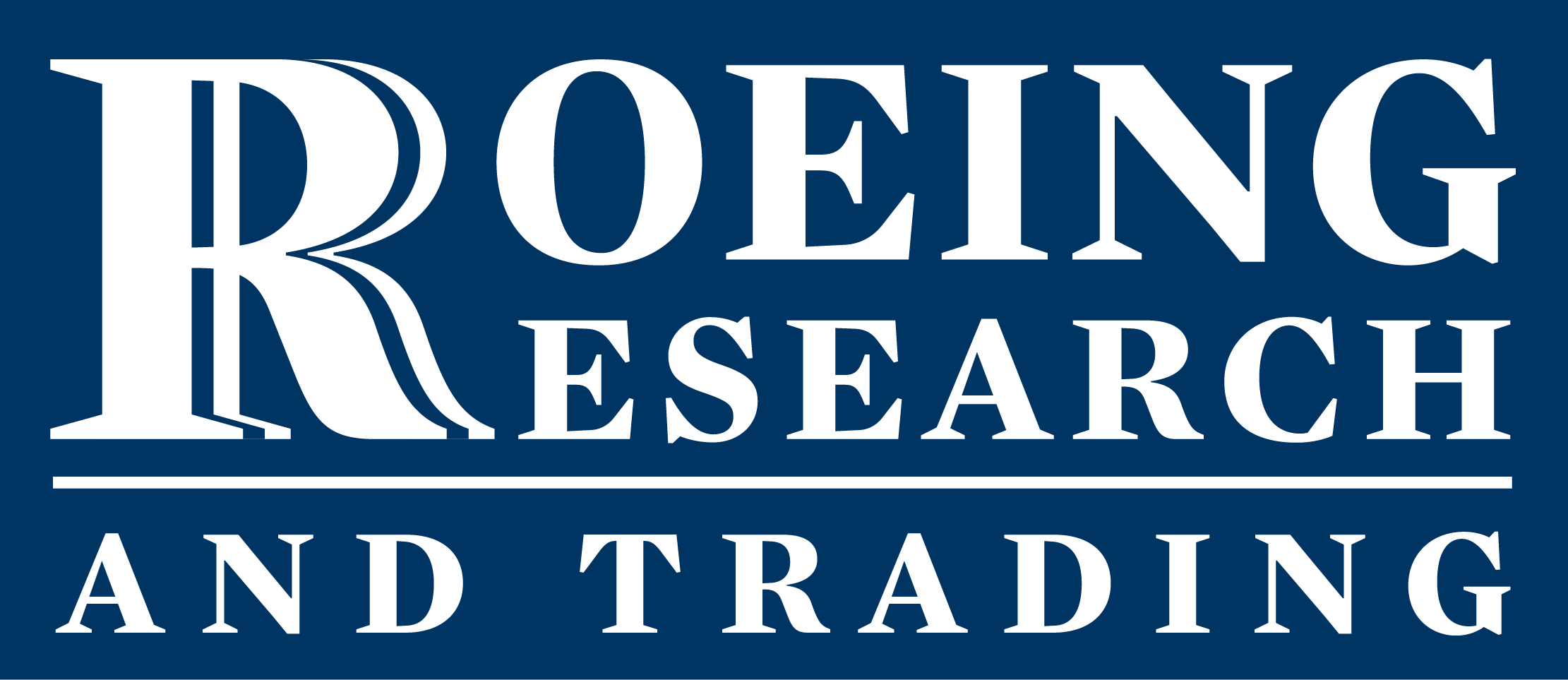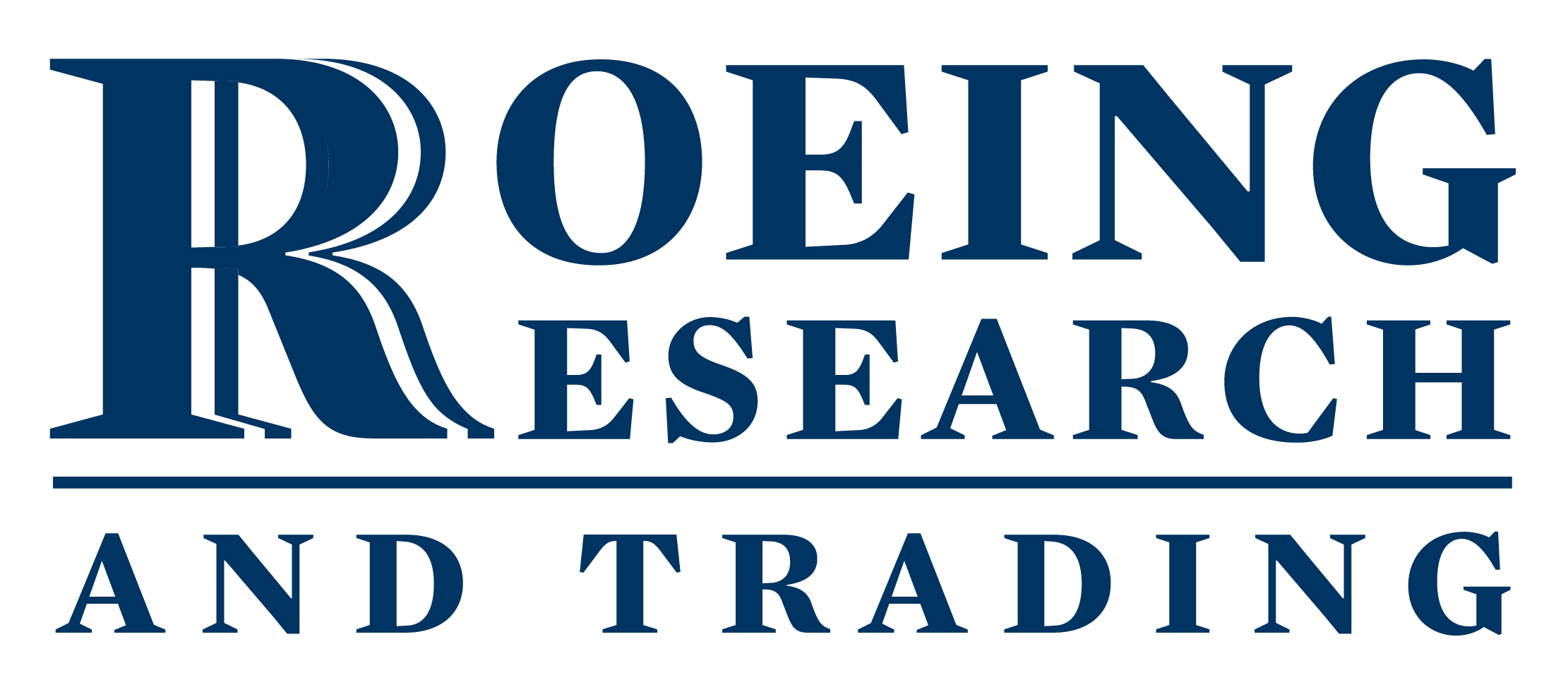Investment
Philosophy

GENERAL PHILOSOPHY
The dominating philosophy at Roeing Research & Trading is to maintain a positive, long-term outlook toward corporate America. Investors need, and have historically been rewarded for, a measure of Faith as the relentless advancement of corporate America has resulted in progressively higher corporate earnings and stock valuations. That trend, while subject to disruption and stretches of regulated “school speed” zones, will not be easily derailed. Faith, by definition, is the assurance of things hoped for; the conviction of things not seen. We must not only believe in the positive, long-term outlook for corporate America, as many studies have exhaustively demonstrated the rewards to patiently holding stocks, but also be able to rely on that belief. We acknowledge the challenge this mindset presents at times. For instance, during the financial crisis of 2008-2009, questions of whether banks might close their doors and fail to meet their depositors’ demands tested the strength of our convictions that the market could right itself. Faith, in short, can be tested.
Faith, while tested, is supported by a hope for a better tomorrow. We acknowledge the age-old call that we should not bury our treasures against some unforeseen calamity; we are called to engage the world, and with the requisite and diligent effort, one can unearth sound, long-term investment opportunities. We recognize, however, that our investment focus must be balanced against prudently managing one’s risk profile; there is a season for everything, including selling and the simple rebalancing of one’s asset allocation.
Our goal is to build wealth over time by selecting investment opportunities in companies with superior management teams that are overseeing undervalued assets. We are first and foremost investing in people—a simple but, we think, profound truth. After examining the competency and integrity of the management team, we then examine the underlying value proposition. To be clear, we believe that integrity trumps competency. Overall, we seek to achieve superior returns in a risk-averse manner that ensures peace of mind during times of plenty as well as the inevitable down cycles when Faith is most assuredly tested.
BEHAVIORAL INVESTING
While markets evolve and change-sometimes glacially and sometimes with immediate dislocation-one constant of investing is human nature and the resultant tendency to gravitate towards greed and fear. Such movements result in market inefficiencies that can be exploited by a value-conscious investing framework.
When we delve into the territory of behavioral finance, we enter the realm of contrarians; that is seeking to take advantage of the tendency for investors to swing between the extremes of greed and fear. One of the most famous examples from history is the infamous BusinessWeek headline of August 13, 1979, that read “The Death of Equities.” The headline evidenced the extremely negative and fearful environment of the time. It hit the newsstands just prior to a multi-generational buying opportunity. We constantly use a discerning eye to differentiate the investment implications of existing and emerging trends to maximize the opportunity for success.
In addition to using the behavioral metrics of the crowd, we must also be cognizant of managing the inevitable ups and downs in our own emotions; perhaps most importantly to avoid the emotional urge to sell in a declining market. In our experience, it is easier to avoid buying run away stocks during periods of greed. Selling out of emotion—or “panic selling”—is arguably the most challenging and detrimental action to achieving long-term investment success. At such times, Faith in the conviction of things not seen is most assuredly tested.
MACRO FORECASTING AND MARKET TIMING
Many investors eschew macro economic considerations and generalized market timing. While we generally embrace the underlying tenet of such positioning, we do not believe that ignoring the fundamental underpinnings of the financial markets is prudent. We believe that risk can be mitigated and exciting opportunities can be discerned from monitoring market fundamentals and adhering to a set of core investment principals. For our purposes, we define “market timing” as making directional calls on major stock indices. The basic challenge to market timing is that the underlying groups that comprise stock indices do not normally move in a tightly correlated manner. Take, for example, early 2016. While the market averages were collapsing 10% by mid February, AT&T and Verizon were well on their way to first-quarter gains of 14% and 17%, respectively. Beyond the myriad influences that make timing broad market indices inherently difficult, the proposition is made even more challenging by our human predisposition to be ‘right.’ The human ego is built in such a way as it will at times find more comfort in seeking to be right than in making money. This predisposition can erect serious roadblocks to an investor’s ability to admit when he or she is wrong. Following set investment strategies, Roeing Research and Trading looks to evaluate macro-economic fundamentals while capitalizing on the Internal Trends of the financial markets to achieve superior risk-adjusted returns.

Recent Comments